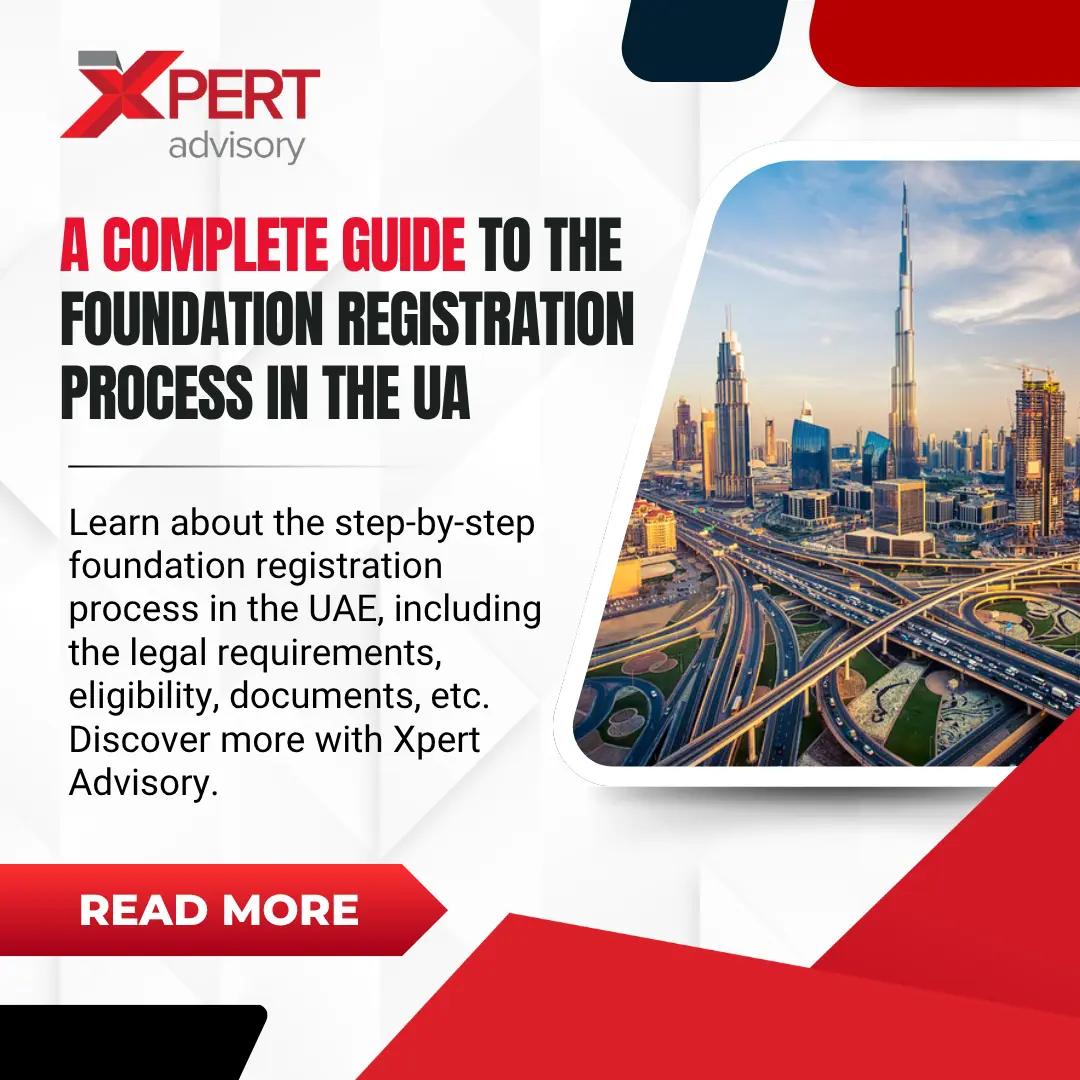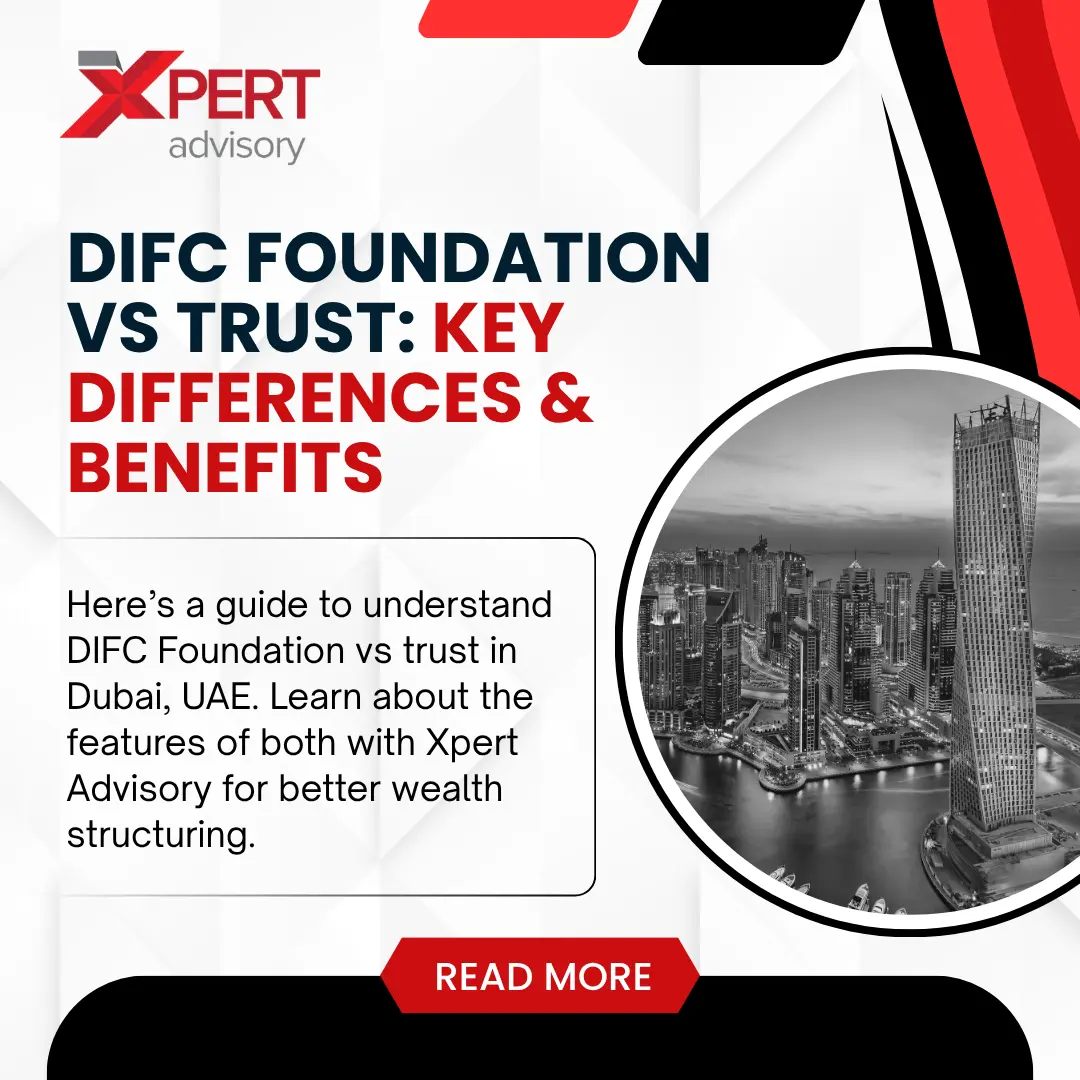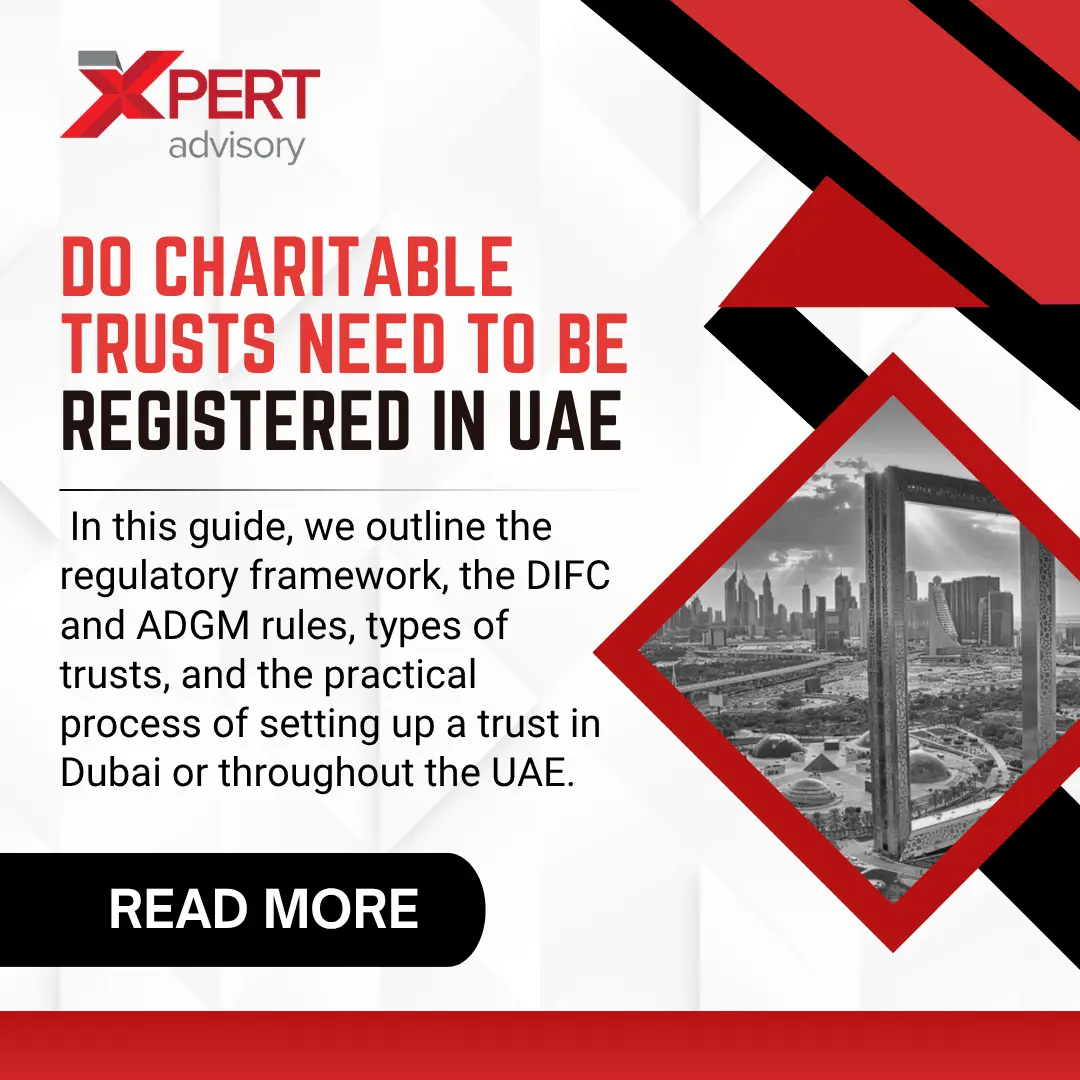In the United Arab Emirates, foundations have become a potent legal framework for succession planning, asset protection, wealth management, and philanthropic endeavors. In the UAE, a foundation functions as a separate legal organization that is primarily concerned with holding and managing assets for particular objectives specified by its creator or founders, in contrast to regular enterprises.
A lot of you may not be clear about setting up a foundation in the UAE. This is why we have provided a guide to understand the foundation registration process, and more. Let’s get started:
Understanding a Foundation in the UAE
A foundation is a legal organization created in the United Arab Emirates with a specific goal in mind, usually long-term wealth management, philanthropy, family succession, or other well-defined goals. The entity functions in accordance with a charter and bylaws that regulate its operations, structure, and methods of distribution. It also holds assets apart from the founder’s personal estate.
Foundations in the UAE offer:
- Legal personality is separate from the original members
- Possession and management flexibility for assets such as shares, real estate, and intellectual property
- Protection of assets against lawsuits or creditor claims
- Planning for succession without the hassles of trust law
- Increased privacy, with certain governments keeping operational details secret
Key Jurisdictions to Register Foundations in the UAE
You have to determine the type of foundation you are choosing. There are several free zones and jurisdictions in the UAE that control foundations, including:
- The DIFC, or Dubai International Financial Center: Provides a foundation-friendly environment that is well-regulated by the DIFC Foundations Law. DIFC foundations are eligible for specific tax advantages and can function with strong governance frameworks.
- The ADGM Foundation: The ADGM Foundation’s Regulations of 2017 govern the Abu Dhabi Global Market (ADGM), which has a thorough framework that blends a high degree of freedom with legal certainty.
- Ras Al Khaimah International Corporate Centre (RAK ICC):Offers a discreet and simple-to-manage offshore foundation system for foreign investors.
The general procedure and guiding concepts are the same, with minor variances, while each jurisdiction has its own unique registration procedures, costs, and compliance standards. The choice between DIFC and ADGM is yours to make. However, make sure to weigh the cons and cons.
Step-by-Step Process for Foundation Registration in the UAE
Here is a detailed guide to understand the foundation registration process and set up a foundation for yourself.
Step 1: Define the Foundation’s Purpose and Structure
Outlining the foundation’s primary goal in detail is the first stage. This includes specifying whether it’s for charitable activities, philanthropic endeavors, legal entities, family wealth management, or other goals. The structure must indicate whether it will be in place for an extended period of time or forever.
Important factors of a foundation council include:
- The founder may be a person or a company.
- The foundation must have at least two council members, who are the governance structure in charge of making decisions.
- For extra supervision, guardians or supervisors may be appointed.
- Mechanisms for succession planning are incorporated into the governance agreements.
Step 2: Draft Essential Legal Documents
A foundation can be established only when you provide essential legal documents. The foundation’s constitution is outlined in its charter and by-laws.
- A foundation must have a registered name (which must finish in “Foundation”), goals, length, initial endowment, details about the founder or founders, and general governance are all outlined in the foundation charter to ensure compliance.
- The bylaws establish comprehensive principles to protect assets, council member selection and removal processes, decision-making authority, and administration.
- To guarantee adherence to the laws of the selected jurisdiction and to the founder’s wishes, legal competence is strongly advised when creating these agreements.
Step 3: Appointment of Council Members and Registered Agent
For an easy foundation setup in Dubai, at least two council members, who may be either private individuals or corporate entities, must be appointed by a foundation to oversee its resources and activities in accordance with the charter.
- Council members are not subject to stringent residency restrictions, which offers flexibility.
- A founder may serve on a council as well.
To manage regulatory communications in situations when the private foundation does not have a physical presence in the jurisdiction, a registered agent licensed similar to a relevant regulatory authority in that jurisdiction must be appointed for a successful foundation.
Step 4: Submit the Registration Application
To establish a foundation in Dubai, the appropriate authority must receive the foundation’s charter, bylaws, appointment resolutions, and the necessary identification and due diligence paperwork for the council members and founders:
- For DIFC foundations, the DIFC Registrar of Foundations
- ADGM Foundations’ ADGM Registration Authority
- RAK ICC Registrar for RAK ICC Foundations
These are the different types of foundations to choose the jurisdiction that suits you best. In addition to processing durations that can range from two to four weeks, depending on completeness and complexity, application costs are required, usually ranging from USD 200 to USD 300*, depending on the jurisdiction. A foundation is established when you successfully submit the application on time.
Step 5: Funding the Foundation and Operational Setup
Financial interests, real estate planning, and other valuables may be formally transferred to the foundation’s ownership following registration. To successfully manage assets and adhere to local regulatory norms, the foundation’s accounting and financial management systems must be carefully structured.
Due to regulatory complexity, some regular banks could be hesitant to operate directly with foundations; therefore, family office providers or specialist financial services frequently help with asset management and banking, providing financial statements, etc.
Legal and Compliance Considerations
In the UAE, to complete the foundation registration process, you are required to keep correct records, complete yearly reporting requirements, and abide by anti-money laundering (AML) laws. This is among the legal requirements for a foundation set up.
- By limiting public access to internal management procedures and rules, privacy is preserved.
- Although they are not allowed to engage in commercial activity, foundations are allowed to own and manage assets in order to further their goals. This ensures strong asset protection.
- Family foundations usually function through their council for governance rather than having corporate shareholders.
Depending on the jurisdiction, tax benefits may be applicable; for instance, ADGM foundations profit from the UAE’s advantageous tax structure.
Special Considerations for Charitable Foundations in Dubai
Dubai foundations with philanthropic or humanitarian objectives are subject to various regulations:
- Must register with the Community Development Authority (CDA) and other Dubai authorities
- Set a minimum endowment requirement, such as AED 5 million.
- A board of directors and founders are involved in governance.
- Activities with an emphasis on social and humanitarian work that are restricted to non-commercial goals.
Advantages of Registering a Foundation in the UAE
Here are a few benefits of a foundation in the UAE. These include:
Asset Protection: keeps assets apart from the founder’s private property and protects them from lawsuits from other parties.
Planning for Succession: Foundations offer a simplified legal structure for transferring wealth between generations.
Confidentiality: Compared to other legal bodies, privacy and confidentiality offer strong safeguards.
Flexibility: Suitable for charitable causes, families, and individuals or entities.
International Recognition: UAE foundations are becoming more and more well-known for keeping assets across borders.
Tax-Efficient: Depending on the jurisdiction and asset class, the UAE may offer tax benefits.
Final Takeaway
The UAE foundation registration offers a flexible and secure structure for managing wealth, securing family legacies, and supporting charitable purposes. For families and individuals seeking sophisticated asset protection and succession planning solutions, establishing a foundation in the UAE represents a highly attractive option.
Ready To Set Up a Foundation?
If yes, you must seek the help of an experienced and highly trained business consultant. Xpert Advisory in the UAE can be your partner in navigating the process of a foundation setup. Call us today to know how we can help you protect your personal wealth and legacy.
FAQS
Who Can Set Up a Foundation in Dubai?
Anyone, whether that’s an individual or a corporation, can set up a foundation in Dubai, UAE.
How Long Does It Take To Set Up a DIFC Foundation?
It usually takes 2-4 weeks to complete the process of registering your DIFC Foundation.
Can Family Businesses Opt For a DIFC Foundation?
Yes, absolutely. A DIFC foundation provides a robust structure for the management and succession of family wealth.





